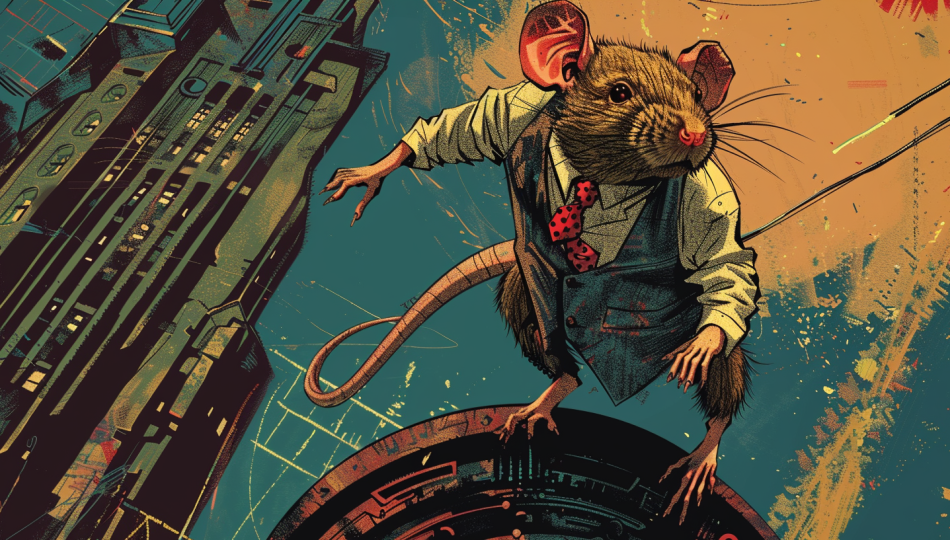The end of the Mordor era is nearer. How is Gen Z transforming our workplaces?

Editor

related articles
related offers
What is the corporate “Mordor”?
For many years, when one thought of an office, a particular picture would come to mind.
That of a noisy open space, filled with little cubicles, which in turn were filled with overworked employees, who, powered only by the looming doom of deadlines and several lukewarm cups of coffee, weren’t able to dream of more than the arrival of the long-awaited 5 o’clock. That is, if they were so lucky, and no overtime was required.
It got so bad, that in some cities, the areas where many corporate businesses had branches, often were re-christened with new, “special” names. Such was the case of Warsaw’s “Mordor” – an informal and infamous name for the area of Domaniewska, Woloska, Cybernetyki, and Marynarska streets. It is a reference to the fantasy novel The Lord of the Rings, where Mordor is an area inhabited by all things evil, and is described as:
“a dying land, but it was not yet dead. And here things still grew, harsh, twister, bitter, struggling for life." (J.R.R. Tolkien, “The Return of the King”, p.900)
As far as allegories go, this one is rather unsubtle, though not unfitting.
There is even a "Mordor on Domaniewska" group on Facebook. As of today, it has 172,000 observers, who, exchanging biting memes and comments, unite under the common slogan: "Corporate Rat = State of Mind."
Zoomers to the rescue!
Nowadays, however, this particular picture of work is becoming a thing of the past.
Once a static landscape dominated by traditional norms and structures, the modern workplace, slowly but steadily, is undergoing a significant metamorphosis.
And it is largely catalyzed by the entry of Generation Z.
To understand the transformative impact of Gen Z, it is imperative to dissect their characteristics and motivations. Born between 1995 and 2009, Generation Z, aka Gen Z or Zoomers, amount to 27% of the global workforce.
Zoomers are often considered to be the first digital natives. Raised in an era of technological proliferation, Gen Z is characterized by a deep-seated familiarity with digital platforms, unparalleled access to information, and a penchant for authenticity.
Unlike their predecessors, they prioritize flexibility, diversity, and purpose in their professional pursuits. According to Deloitte’s report, “Welcome to Generation Z”, 76% of Zoomers, more than any previous generation, pay particular attention to social activism and working in a company that reflects their values.
Below are four ways in which Zoomers are redefining organizational dynamics:
No.1: Technology as an everyday tool
At the forefront of Gen Z’s influence is their seamless integration of technology into every facet of life, both personal and professional.
With an innate proficiency with digital tools, Zoomers can catalyze the adoption of cutting-edge technologies within organizations, thus driving efficiency and innovation. This, in turn, fosters a culture of continuous learning and adaptation.
No.2: Work-Life Balance
Gen Z’s prioritization of work-life balance challenges the traditional notion of 9-to-5 employment.
To respond to Zoomer’s desire for autonomy and flexibility, many modern organizations are compelled to reimagine their policies and infrastructures. In order to accommodate these preferences, they adapt remote work options and flexible work arrangements.
No.3: Diversity and Inclusion
With a heightened awareness of social justice issues, Gen Z champions diversity and inclusion in the workplace. They demand equitable representation across all levels of the organization, which prompts companies to prioritize diversity initiatives and cultivate inclusive cultures.
It also doesn’t hurt that the organizations stand to benefit from this, too.
By embracing diverse perspectives and experiences, enterprises not only enhance employee engagement and creativity but also bolster their reputation as socially responsible entities.
No.4: Purpose-Driven Work
Zoomers are driven by a desire to make a meaningful impact. Thus, they gravitate towards purpose-driven work environments. They seek employers whose values align with their own, prioritizing corporate social responsibility and ethical business practices.
Consequently, organizations are compelled to articulate their purpose beyond profit, fostering a sense of purpose and fulfillment among employees and attracting top Gen Z talent.
Does one simply walk out of Mordor?
All in all, the transformative impact of Gen Z on the modern workplace is indisputable.
By embracing technology, prioritizing work-life balance, promoting diversity and inclusion, and embracing purpose-driven work, Gen Z is reshaping the workplace landscape – and for the better.
Interestingly, this seems to be a win-win situation. Same as employees stand to benefit for a better and more inclusive work environment, companies can position themselves for sustained success in the digital age.
However, it is worth remembering that change is rarely an easy process. Neither is it singular nor fast. Just as “Rome wasn't built in a day”, it will take more than a flick of a magic wand to transform Warsaw's “Mordor” into “Disneyland”.
And turn a corporate rat into a proper Micky Mouse.












